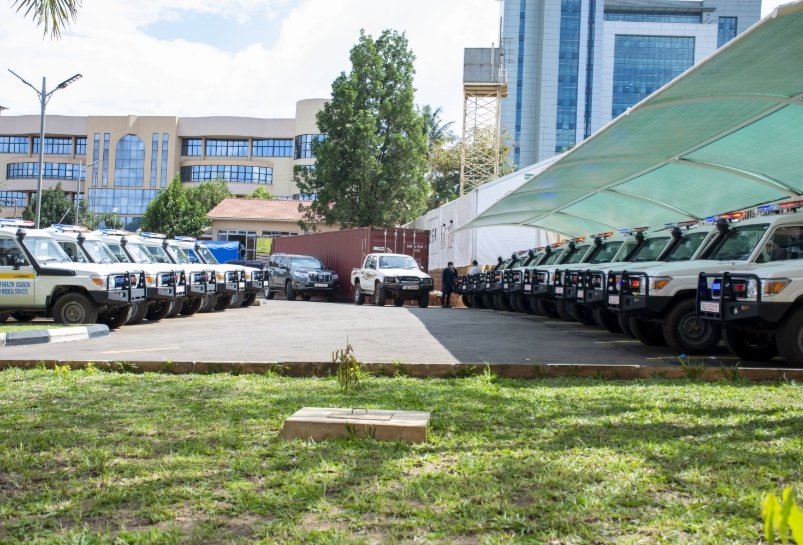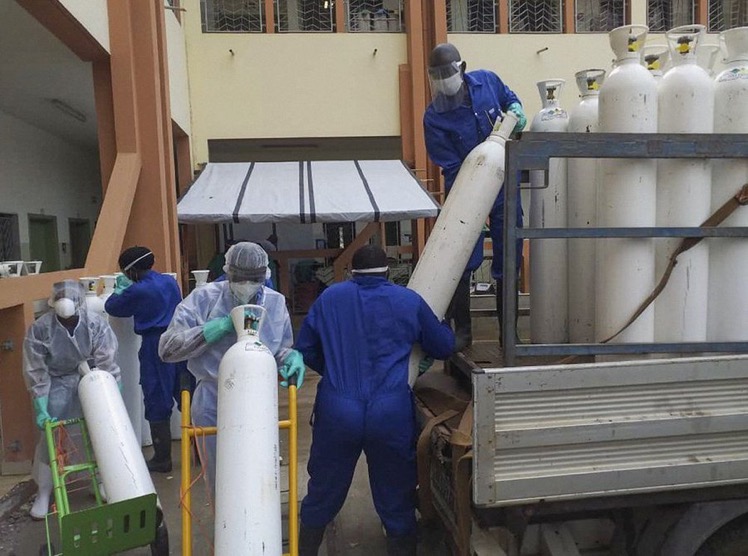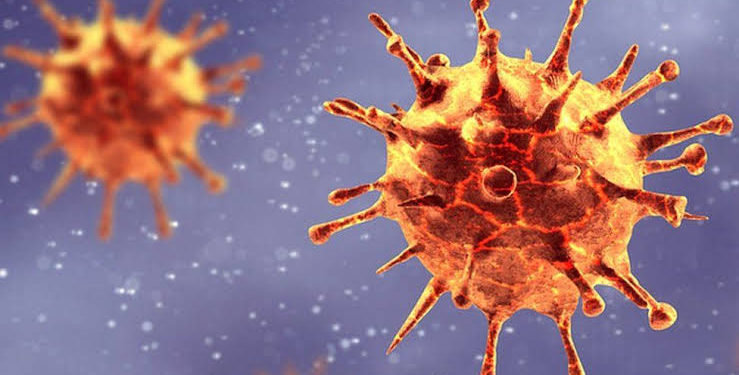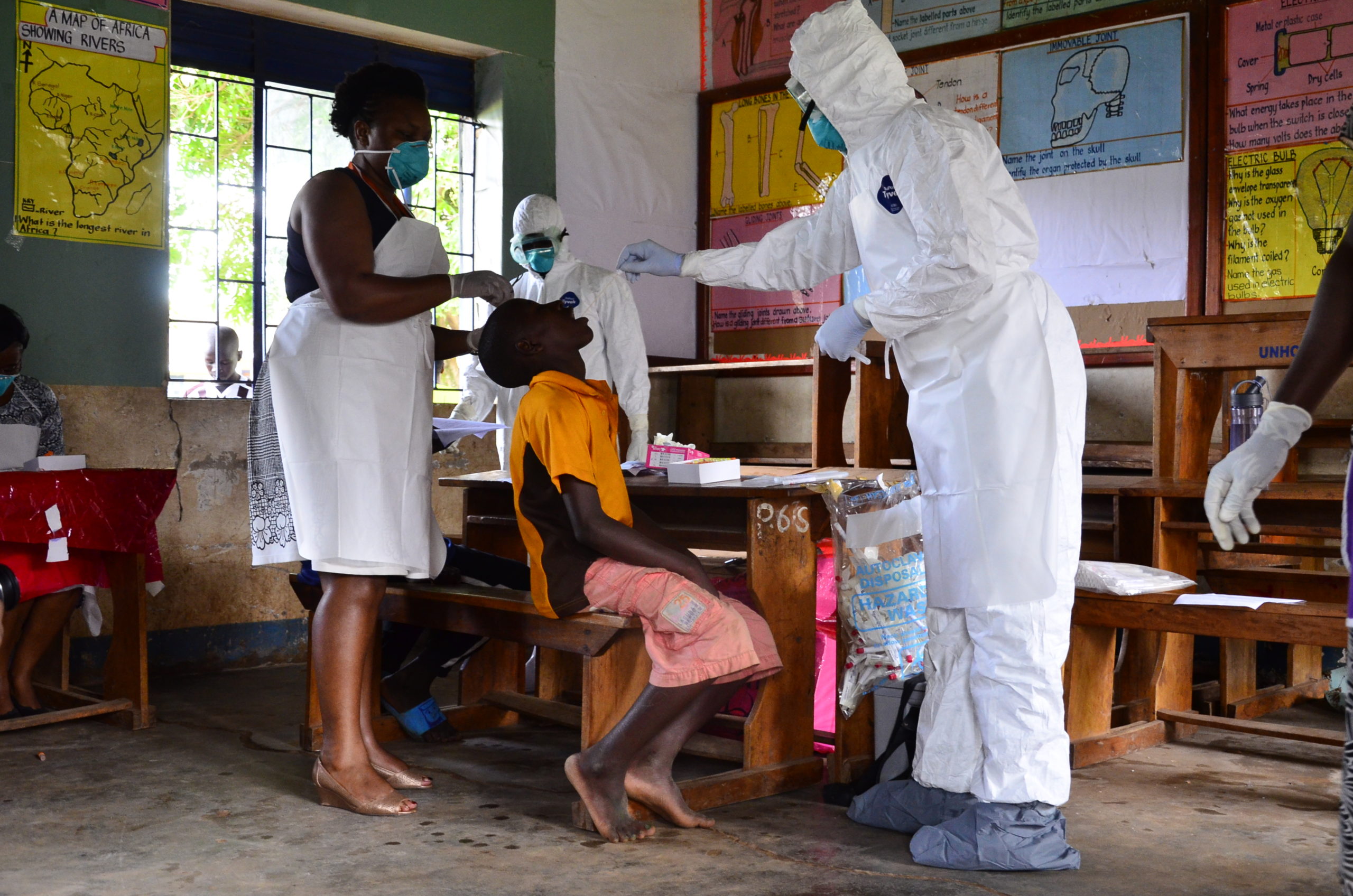Uganda’s ailing health sector could creak under the strain of a second wave of the Covid-19 pandemic as health officials confirm that at least five deadly variants have been registered in the country.
“This is a sign that Uganda is at the foot of the resurgence or another wave in the pandemic and also an indication that all age groups are affected,” revealed the Health minister Dr Jane Ruth Aceng on May 5th 2021.
The variants registered include the Indian, South African, Nigeria and UK strain.
Some of these variants have been reported to be more transmissible and severe.
Viruses constantly change through mutation, and new variants of a virus are expected to occur over time. Sometimes new variants emerge and disappear. Other times, new variants emerge and persist.
For instance the Indian variant, which has left a trail of death and despair, scientists do not yet know whether this variant is more infectious or resistant to vaccines.
And this mutation may help the virus evade antibodies in the immune system that can fight coronavirus based on experience from prior infection or a vaccine.
Between March and April 2021, the country registered an 81 percent increase in the number of Covid-19 cases.
According to the Health ministry, there is an increment amongst children aged 10-19 years and five percent amongst children aged 20-29 years.
An upsurge has also been registered in the districts of Kiryandongo, Adjumani, Oyam, Gulu and Jinja.
“The emergence of the cases in Jinja is attributed to a cluster of individuals working in a factory in Buikwe district, one of whom recently arrived from India with the four being close contacts. The five affected individuals have been isolated at Jinja Referral Hospital and are undergoing treatment,” Dr Aceng said.
Speaking to journalists at the Health ministry offices in Kampala recently, Dr Misaki Wayengera, the chairperson of the ministerial scientific advisory committee, ominously warned that the second wave is going to be more severe and perhaps put the country’s health sector to the sword just as it is unfolding in India.
“The factors that drive the surge in India are not different from what we are in now. A lot of our people think we have overcome the epidemic because we had a dip in numbers, which was associated with the rise in temperatures during the hot season,” Dr Misaki Wayengera, the chairman of the advisory scientific committee on Covid-19, said.
Wayengera says the pandemic often starts slowly with ‘a lag phase and then there is a rapid phase, and finally we hit a stationary phase. We are in the second wave of the pandemic, only that we are in the lag phase.’
Government has since then ordered the suspension of all passenger flights from India. Government has also placed on the red list countries that are categorised to have these variants.
Aceng says that no travellers from India will be allowed into the country. All travellers who have been in or travelled through India in the last 14 days, regardless of the route of travel, will also not be allowed into the country,
“Passengers who were already in transit must present negative PCR test and will then take another PCR test and those who test negative shall undergo self-quarantine under the supervision of the Health ministry, with mandatory retesting between five and 10 days,” Dr Aceng said.
However, cargo flights where crew don’t disembark, technical stops where travellers don’t disembark, operations related to humanitarian aid, medical evacuation and approved diplomatic flights and nationals returning after medical treatment from India have been exempted from the suspension of flights.
The government has advised people intending to fly into Uganda from the US, UK, United Arab Emirates, Turkey, South Africa, Ethiopia, South Sudan and Tanzania to postpone non-essential travels.
However, those travellers from the above categories who have been referred to as Category Two, including nationals, will be subjected to a PCR Covid-19 test at points of entry.

“Countries not in Category One and Two are exempted from above measures. Individuals from Category One and Two who have received full Covid-19 vaccination and are asymptomatic will be allowed into the country without on arrival,” Dr Aceng said.
Although Kenya is not on the list of any categories, Dr Aceng said this will be looked into and measures enacted after a Cabinet meeting.
The UK variant has been detected among 15 people, mostly truck drivers from Kenya, while one patient at Mulago hospital has been detected with the Indian variant, whereas a South African variant has been detected among 15 people, mostly Kenyan truck drivers.
According to the Health ministry, epidemiological distribution and impact of thee variants is currently unknown, although more studies are being carried out.
But there are fears that the moribund health sector could struggle to cope with the second wave.
A dossier released by the Finance ministry last year into the vote worth billions of shillings doled out to combat the Covid-19 pandemic portrays a bleak situation as a result of delays to procure vital medical equipment like ambulances and Intensive Care Unit beds could place hundreds of patients in harms way. It also implicates high-ranking officials in deals that could have been inflated and procured through influence peddling.
For instance, 38 ambulances were supposed to be procured by City Ambulance Limited, which was contracted to supply the fleet at shs 11bn. All funds were uploaded onto a letter of credit at BoU by 30th June 2020. “The initial delivery date was 30th July 2020, this was not achieved by September 2020 and extended to November 2020,” reads the report.

According to the report, a firm, Elsmeed EA Ltd was contracted to supply equipment worth shs 26bn on 18th June 2020. Initial deliveries were expected in August 2020, however due to high demand of the same equipment internationally, delivery period was extended to December 2020. The supplier was expected to supply 1,553 units of equipment to 17 Regional Referral Hopsitals. These included defibrillators, suction and infusion pumps, nebulizers, mobile x-rays, oxygen concentrators, weighing scales, portable ultrasounds, patient trolleys, ventilators, and Intensive Care Unit (ICU) beds among others.
“The second contract was signed between the Health ministry and Joint Medical Stores (JMS) to procure ICU equipment worth shs 10.5bn on 24 May 2020. The JMS was expected to deliver 388 pieces of ICU equipment comprised of 28% ventilators, 25% patient monitors, 24% oxygen therapy apparatus, while the rest (22%) were ICU beds. The equipment was expected to be delivered in six weeks,” reads the report.
The report further reads, “This was not achieved by 30th June 2020, however JMS had delivered equipment to six hospitals; Naguru, Entebbe, Jinja, Mbale, Lacor and Lira. Other hospitals had not received the equipment by 2nd September 2020. Deliveries and installations [of equipement] were expected to be completed by December 2020. It was noted that some hospitals like Gulu and Arua did not have adequate space for the ICU equipment.”
Silver Bucks Pharmacy Ltd was contracted to supply and install oxygen plants for the National Referral hospital Mulago and Entebbe hospital at a cost of shs 6.4bn. Supply 450 cylinders including regulators, humidifier bottles, and cannula among others. The contract was signed on 6th May 2020, it provided a two-year warranty including spare parts. “Although 100% of the invoice value was paid by 30th June 2020, deliveries and installations had not commenced by September 2020,” reads the report.
With many hospitals ill equipped, the Health ministry fears that a deadly resurgence, which bears parallels with India’s is underway if the public continues to violate the Standard Operating procedures (SOPs).

The ministry says there has been a gradual increase in Covid-19 cases in the last six weeks, which is an inclination towards the beginning of a second wave.
Dr Aceng said non-adherence to SOPs, increased travel following reopening of borders and general fatigue in regards to safety measures are some of the contributors to resurgence.
The Health ministry has also put in place a financial war-chest estimated at $290.2 million, which is the equivalent of Shs 1 trillion to combat the second wave. However, this does not include cost of vaccines.
“The resurgence plan is organised around two threshold, control alert and action. The alert threshold is reached when there is an increase of 10 per cent in the number of cases, while the action threshold begins when a 20 per cent increase is observed from baseline in geographical location,” revealed the Health minister.
Some of the activities under resurgence plan include enhanced surveillance, active case search, and procurement of test kits, personal protective equipment, critical care support, strengthening community engagement and risk communication, and supporting vaccination team’s countrywide for period of six months.
“The main objective of the resurgence plan is to mitigate transmission and minimise the public health and socioeconomic impact of a prolonged Covid-19 response,” Dr Aceng said.








